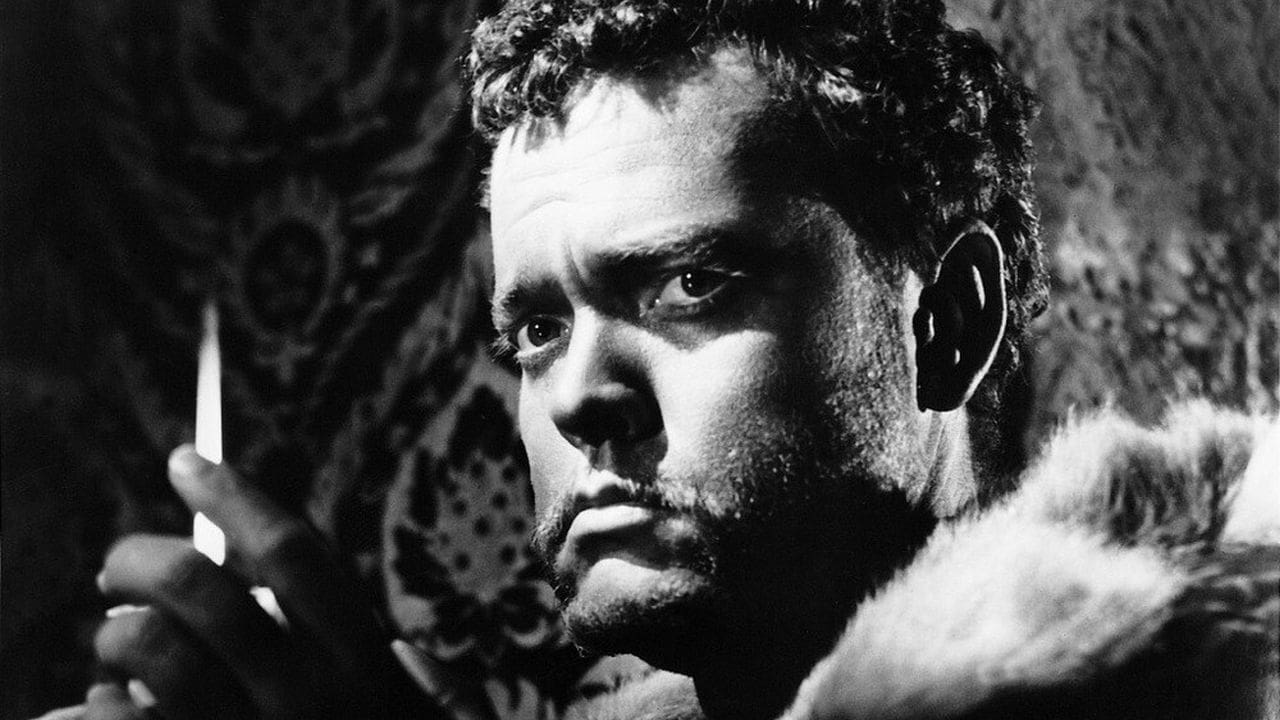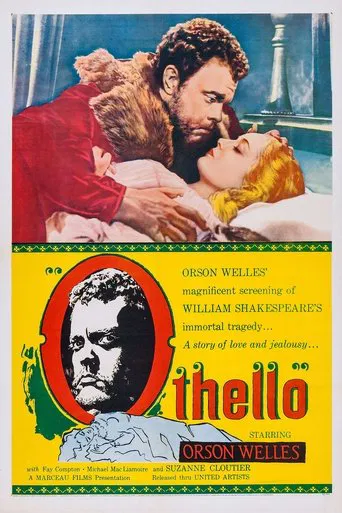TaryBiggBall
It was OK. I don't see why everyone loves it so much. It wasn't very smart or deep or well-directed.
Ketrivie
It isn't all that great, actually. Really cheesy and very predicable of how certain scenes are gonna turn play out. However, I guess that's the charm of it all, because I would consider this one of my guilty pleasures.
Aneesa Wardle
The story, direction, characters, and writing/dialogue is akin to taking a tranquilizer shot to the neck, but everything else was so well done.
Ava-Grace Willis
Story: It's very simple but honestly that is fine.
Kirpianuscus
the mark of Oscar Welles. this is the basic virtue of film. the second - Oscar Welles himself as inspired Othello. and Emilia by Fay Compton. Micheal MacLiammoir seems give a mix of Richard III and Iago. and Desdemona...she remains a shadow with ambiguous traits. another virtue - the cinematography. and a new, convincing, lecture of Shakespeare. maybe, not the most inspired adaptation. but seductive, precise, impressive for details and for the way to use the text with force and grace.
sharky_55
This adaptation of the Shakespearean tragedy manages to be compelling despite its infamous and troubled production. Othello's majestic coat lined with mink fur is none other than the same one stolen from the set of The Black Rose. Whole sequences seems missing and compositions and edits are at times jarring and sparse; ADR is visible in many instances. The moor's impressive army had to be cleverly concealed or else the truth would have been evident; nothing but a rag tag bunch of extras. The crucial death scene of Roderigo is shot within a bathhouse because of the lack of costuming. And Suzanne Cloutier's Desdemona seems perhaps a little thin compared to Welle's screen presence - then again, she was only the third actress cast in the role. But it is compelling all the same. The soundtrack's troubled restoration process does not take away from its presence. In one particular moment, right after Othello's mind has been corrupted by Iago's lies, he seeks to confront his guilty wife. As Desdemona floats into the frame, a demure flute tune sets the mood, but as Othello demands her hand to check if it is moist, the strings suddenly chime in ominously. It offers information alongside Welles' glare. A heavy piano note suddenly drops onto the track when Desdemona seemingly innocuously brings up the issue of restating Cassio, not knowing how damning this statement is in her husband's raging mind. And then they spar, with her not budging up the issue, and him demanding the handkerchief. Oh it's wonderfully ironic how at odds their intentions are. But Shakespeare has to be given credit for this confrontation. Here Othello is asking a question he already knows the answer to, condemning her even before she gives that fatal answer. Anything short of magically conjuring the handkerchief to show Othello (even that in itself might have been refused and called an act of witchcraft that Othello himself is initially accused of) is just confirming his suspicions. Early on in the film there is a narrator who introduces us to settings and happenings as if any viewer would not already be familiar with the famous Shakespeare play, but Welles wisely does away with him and his obtuse dialogue (then again, Welles' also does not include any of Iago's soliloquies which map out his plan like a step-by-step guide). The lines are cut heavily; despite being one of Shakespeare's longer works the film only clocks in at 91 minutes, nothing compared to some of the line-by-line mammoth adaptations that leave no word behind. There are some weird editing choices that accentuate this; Othello and Desdemona embrace and he whispers that they have but an hour to consummate their marriage, before we cut and suddenly it has been weeks at sea and they are eagerly reunited at Cyprus. But the narrative's most important moments remain and that is sufficient. It is not purely theatrical and relying on its performances; the film is full of disconcerting cinematography that is appropriate for the addled mind of Othello. There is no flat theatre stage here. When he slips into his trance, we get a reverse bird's eye of sorts, where we are looking directly up at the sky, and the camera spins and spins and spins as the upside-down crowd look up in puzzlement. The same disorientating effect is used when he is trapped in the room of his murder forever - the walls are blurred and closing in. The original play might prefer Iago to take the soliloquy spotlight, but Welles' visualises contemplation in his own way, by forcing the confusion and agony of his face back at him through the mirror. In a clever shot Iago is talking to Othello out of frame; oh but he is there anyway, in the mirror and seized up in concentration. Desdemona stares innocently right into the lens and into Othello's soul, and he later does the same to Iago; this technique effectively characterises his growing distress and unnerve. The lighting also aides this process; from the natural sun bathed beaches, Othello is then slowly enveloped by the darkness, until only his pupils, as green as can be even in the black and white film-stock, can be seen in the sunlight. In that final speech where he implores the men to record this story in an unbiased manner (although he himself shows signs of bias), his entire body save his face is wrapped by complete darkness. He has been enveloped and corrupted by his absolute jealously.
Ensign_Ricky
This may actually be one of the worst productions of Othello I have ever seen. Cuts are made left and right to the original script to the point where not only is Iago's entire motive for his actions lost, but the character of Desdemona may as well have been played by an inflatable sex doll for all the impact she has on the production. I don't know how much of this to blame on Welles (I couldn't help but notice all of HIS monologues were pretty much intact, while poor, honest Iago's either lie on the cutting room floor or were never filmed to begin with), or the editor of the film. Whichever is responsible should have been ashamed of themselves for turning out this slap in the face to Shakespeare.
Michael Neumann
The re-release in the early 1990s of Orson Welles' cut-and-paste Shakespeare tragedy was greeted by near unanimous critical acclaim, but all the belated comparisons to 'Citizen Kane' couldn't hide the desperate circumstances under which the film was made. Welles himself gave an impressive, suitably moody performance in the title role, but all his efforts were undone by too many budget restrictions (consecutive scenes were sometimes shot years apart), leaving only a flimsy shadow of what could have been another masterpiece. Visually, the film highlights all the trademark eccentricities of its director, including some ostentatious, imitation Gregg Toland cinematography. But the shoddy editing and poorly recorded sound track diminish the impact and beauty of Shakespeare's language, and the occasional flash of brilliance isn't enough to salvage yet another compelling failure from a wayward genius.

